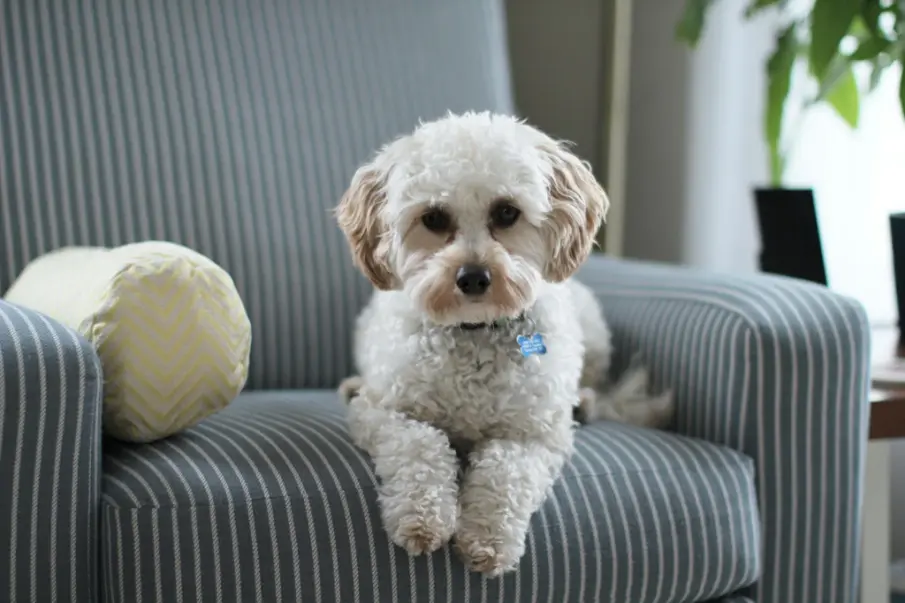How to Be Sensitive to People Who DON'T Love Dogs

You're a dog lover. And many people get it. There’s something special about the wagging tails and soulful eyes that greet you every day and love you unconditionally. For many, dogs are considered to be family. Although you love every bark and wag, there are others who simply don't share this enthusiasm. Whether it's because they've never been fond of dogs, have allergies, or carry a deep-seated fear, understanding and respecting these perspectives is important. Here's some advice on being sensitive to those who don't love dogs as much as you do.
It might surprise you if you've always loved being around dogs. But not everyone finds joy in a dog's bark or a snuggle from a furry friend. Some people may simply not have grown up around dogs, and the bond that you have with your pet may feel alien to them. For others, it could be cultural or personal preferences shaping their views.
And then there's allergies. Imagine caring deeply for someone but feeling unwell every time you're near them. That's often the reality for those with pet allergies. Allergies are no joke. They can range from mild sneezes to severe respiratory issues. For people with allergies, even the thought of entering a home with a dog can be frightening. This isn't about disliking your dog – it's about prioritizing health and comfort.
There's also the fear factor. Dogs are beautiful creatures, but to some, they can be intimidating. Cynophobia, or fear of dogs, is a real and often misunderstood condition. It might stem from a traumatic experience like dog bites, or it could simply be an unexplained fear. When someone is afraid of dogs, it's important to create a safe environment. Acknowledge their fear without judgment and take steps to ensure they feel secure in your presence and that of your pet.
But for some people, it actually is a dislike of your dog, unfortunately. Some people just don't love dogs, and that's okay. Just as you might prefer vanilla ice cream over chocolate, people have different preferences when it comes to animals. You need to respect these differences, just as people respect your own preferences for things.
So if everyone isn't a dog enthusiast, how you can be sensitive to their needs? It's all about creating environments where everyone feels comfortable, regardless of their feelings toward dogs.
Communicating
The first step is open communication. When inviting guests over, especially if they haven't met your furry friend, it's courteous to inform them of your dog's presence. This allows them to prepare mentally or physically, whether it means taking allergy medication or just knowing what to expect. It also shows that you respect their comfort.
Setting Boundaries for Your Dog
Establishing boundaries is a practical way to make both dog lovers and non-dog lovers feel at ease. Consider designating specific areas for your dog to roam freely and others where they're restricted, especially when hosting guests. This simple gesture can make a huge difference in the comfort level of someone who might be uneasy around dogs.
Training Your Dog for Social Situations
Training is not just beneficial for your dog, but also for the people they interact with. Basic commands like "sit," "stay," and "come" can help manage your dog's enthusiasm when meeting new people. Additionally, consider socializing your dog in different environments to reduce anxiety and over-excitement around strangers.
Providing Alternatives
When planning events or gatherings, provide alternatives for those who might not want to interact with your dog. A separate space where guests can mingle away from pets, or offering activities that don't involve dogs, can show that you're considerate of everyone's preferences. Many people find their dogs don't love social events themselves. So sometimes it can be a much more stress-free occasion if you make other arrangements for your dog when you're having lots of people over.
Educating
Share your love for dogs with empathy. Instead of insisting someone pet your dog or share your enthusiasm, offer gentle education about what makes your dog special. Sometimes, understanding can transform apprehension into appreciation, even if it doesn't convert someone into a dog lover. Explaining why you personally love your dog shows how you recognize this is your personal opinion, which can go a long way for people who don't quite get the dog thing.
Building Bridges
Encourage dialogue between dog lovers and non-dog lovers. You might find common ground, like mutual interests outside of pets, that can strengthen your connections. It's not about changing someone's opinion but building bridges of respect and understanding. And even if you're a huge dog lover, it doesn't hurt to explore other interests you don't even know you have yet!
Keeping Control of Your Dog
One crucial aspect of respecting others' comfort is maintaining control of your dog when in public spaces, such as parks. Not everyone appreciates an enthusiastic dog running up to them, and some might find it intimidating or unwelcome. To prevent this, always keep your dog on a leash unless in a designated off-leash area. Using a leash allows you to guide their interactions with others, ensuring they approach people only with explicit permission. It's also a good idea to work on commands such as "leave it" or "come" to swiftly redirect your dog's attention if they get overly curious about other park-goers. By respecting others’ personal space, you demonstrate responsibility as a pet owner and foster a peaceful coexistence between dog lovers and those who might be less fond of your furry friend.
By being sensitive to those who aren't dog fans, you're showing you respect others. Acknowledging allergies, fears, and personal preferences goes a long way. After all, you want to ensure that every interaction with your beloved pet is a positive one for everyone involved, don't you?
More to Read:
Previous Posts:







